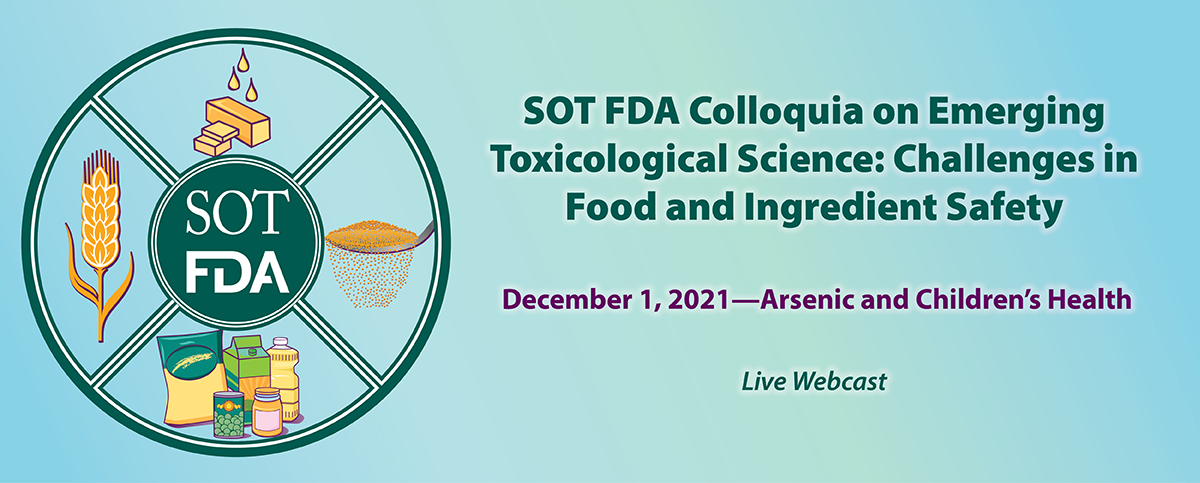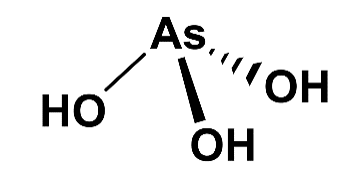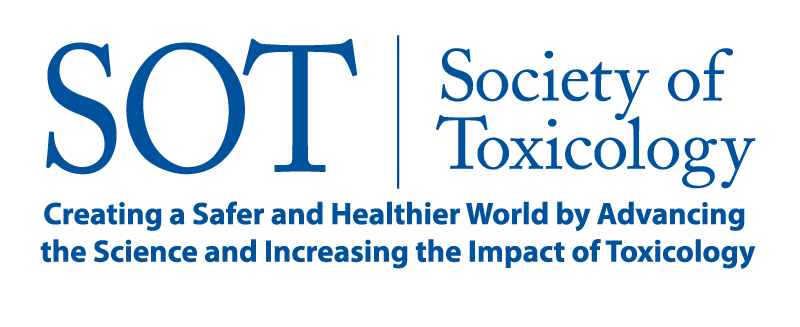
SOT FDA Colloquia on Emerging Toxicological Science: Challenges in Food and Ingredient Safety
Arsenic and Children’s Health
December 1, 2021 • Live Webcast • 9:00 AM–1:00 PM Eastern US, UTC-5
Co-Chairs: Aaron Barchowsky, University of Pittsburgh, and Brenna Flannery, US FDA CFSAN
The Society of Toxicology in conjunction with the US FDA Center for Food Safety and Applied Nutrition (CFSAN) have partnered to provide this colloquia series. The colloquia present scientific information that is high-quality, cutting-edge, future-oriented toxicological science to provide a well-grounded foundation to inform the work of US FDA employees. These webcasts are open to the public at no charge. These sessions are not a public forum for discussion of toxicology regulatory issues.
Webcast RegistrationArsenic is a naturally occurring element found in low concentrations in foods worldwide, including those commonly consumed by young children and pregnant women. Because arsenic occurs naturally, it is not possible to completely remove it from the food supply, which results in arsenic exposure. Arsenic exposure in-utero and/or in childhood is associated with harmful effects including adverse birth outcomes, developmental delay, decreased cognitive function, impaired lung function, and perturbations in the immune and cardiovascular systems. Exposure leaves children at greater risk for future adult diseases. Therefore, it is essential for children’s health to understand the impact of arsenic exposure on child development. This colloquium will present the latest science in the area of arsenic toxicity and children’s development from both toxicology and epidemiology perspectives with specific focus on developmental arsenic exposure and the role of nutrition in arsenic toxicity. This colloquium will also explore the framework of ongoing risk assessments related to arsenic exposure and children’s health outcomes and discuss efforts related to arsenic mitigation in food to reduce children’s arsenic exposure.


| 9:00 AM–9:15 AM | Welcome and Overview |
| 9:15 AM–9:20 AM | Speaker Introductions |
| 9:20 AM–10:00 AM | Current Understanding of Mechanisms Underlying Arsenic-Induced Developmental Toxicity |
| 10:00 AM–10:40 AM | Nutritional Manipulation of One-Carbon Metabolism: Effects on Arsenic Methylation and Toxicity |
| 10:40 AM–10:50 AM | Break |
| 10:50 AM–11:30 AM | Systematic Review Framework and Dose-Response Methods for Identifying Reference Doses for Inorganic Arsenic |
| 11:30 AM–12:10 PM | Arsenic Mitigation in Foods and Ingredients |
| 12:10 PM–1:00 PM | Brief Summary: Brenna Flannery, PhD, US FDA, CFSAN, College Park, MD |
SOT events adhere to the Society’s general privacy policy and disclaimers; participants commit to the SOT Code of Conduct.
Please note that the Zoom service used allows audio and other information sent during the session to be recorded. By registering for this session, you automatically consent to such recordings. The recording of the event is posted to the SOT website for public access after the event. If you do not consent to being recorded, discuss your concerns with the host or do not join the session.
For registration questions contact Jim Dailey.

Conrad Choiniere, PhD
Dr. Conrad Choiniere is the Director of the Office of Analytics and Outreach at the Food and Drug Administration’s (FDA) Center for Food Safety and Applied Nutrition. Dr. Choiniere provides executive leadership for a broad portfolio of scientific and regulatory functions including risk and decision analysis, social and behavioral sciences, epidemiology, biostatistics and informatics, education and outreach, and food defense. Dr. Choiniere currently co-leads a core element of FDA’s New Era of Smarter Food Safety focused on fostering and supporting Food Safety Culture across the food system. He also chairs FDA’s Toxic Elements Working Group which prioritizes the agency’s efforts to reduce exposures to lead, arsenic and other heavy metals from foods to the greatest extent feasible. Dr. Choiniere has a PhD in Agricultural and Resource Economics from the University of Maryland and a Bachelor of Science in Chemical Engineering from Johns Hopkins University.

Aaron Barchowsky, PhD; Colloquium Co-Chair
Dr. Aaron Barchowsky is Professor, Environmental and Occupational Health, at University of Pittsburgh. He received his PhD in Pharmacology at Duke University after a bachelor’s at North Carolina State University. The primary focus of his current research is investigating the cellular and molecular mechanisms underlying human diseases caused by environmental exposures to metals and chronic changes in cellular redox status.

Brenna Flannery, PhD; Colloquium Co-chair
Dr. Brenna Flannery is a senior toxicologist with the US FDA. She has worked in the Contaminant Assessment Branch at the Center for Food Safety and Applied Nutrition since September 2014. During her tenure at FDA, involvement in notable published projects include: The Interim Reference Levels (IRLs) for lead, the Arsenic in Rice and Rice Products Risk Assessment, and the FDA/EPA Fish Advice. Brenna is heavily engaged in FDA’s “Closer to Zero” (C2Z) initiative and frequently assesses the safety of toxic elements in foods. Brenna has published 28 peer-reviewed manuscripts in the areas of toxicology, risk assessment, and nutrition, and has been a member of the Society of Toxicology since 2010, where she has held many leadership roles.
Brenna attended Michigan State University and earned a BS in Human Nutrition followed by a dual PhD in Food Science and Environmental Toxicology. Her graduate studies focused on mechanisms of toxicity of the mycotoxin deoxynivalenol (DON) and included spending one month in Tanzania studying nutrition and mycotoxins. Before joining the FDA, Brenna held a postdoctoral position at the University of California Davis developing rodent models for evaluating novel therapeutic agents to treat pesticide/nerve agent poisoning (NIH CounterACT program).

Rebecca Fry, PhD
Dr. Rebecca Fry is the Carol Remmer Angle Distinguished Professor in Children’s Environmental Health and Associate Chair at the Gillings School of Global Public Health at University of North Carolina-Chapel Hill in the Department of Environmental Sciences and Engineering. Dr. Fry is the founding Director of the Institute for Environmental Health Solutions at UNC-Chapel Hill and the Director of the UNC Superfund Research Program. She is an expert in environmental epigenetics and toxicogenomics. A major focus of her laboratory is to identify mechanisms underlying the deleterious impacts of toxic exposures during the prenatal period with a focus on the epigenome and developmental origins of health and disease. Her group has identified epigenetic mechanisms that relate toxic substances to pregnancy complications, children’s health, and cancer outcomes. Dr. Fry’s laboratory uses transdisciplinary approaches including human population-based research, cell culture-based research, and mouse model-based research to refine the understanding of chemical exposure and toxicity. Dr. Fry’s lab has published on a host of toxic substances including but not limited to acetaminophen, arsenic, cadmium, disinfection byproducts, and per- and polyfluoroalkyl substances (PFAS). She has participated in advisory committees and expert panels, including the committee for the National Academies of Science National Research Council for the Integrated Risk Information System (IRIS) review of inorganic arsenic, a reviewer for the cancer and non-cancer risk assessment of arsenic in food by the FDA, and a reviewer for the International Agency for Research on Cancer (IARC). Fry received her PhD and MS in Biology from Tulane University with research at Yale University and conducted postdoctoral research at the Massachusetts Institute of Technology.

Mary Gamble, PhD
Dr. Mary V. Gamble is a Professor in the Department of Environmental Health Sciences at Columbia University. Dr. Gamble has expertise in nutritional biochemistry at both the basic and applied levels. Her research focuses on translating our knowledge of the underlying biochemistry of folate and one-carbon metabolism to better understand the role of folate on the methylation and toxicity of arsenic. Arsenic undergoes hepatic methylation to mono- and di-methyl arsenicals in a process that is dependent on one-carbon metabolism and that facilitates elimination of arsenic in urine. She has conducted clinical trials that have demonstrated that folate supplementation increases the methylation of arsenic and facilitates arsenic elimination in urine, thereby lowering blood arsenic concentrations in Bangladeshi adults. An ongoing randomized control trial (RCT), Arsenic and B-vitamins in Children (the “ABC” study), is evaluating the efficacy of folate and vitamin B12 supplementation in lowering blood arsenic concentrations in children. New projects involve interdisciplinary research with a team of data scientists within CU-Mailman School of Public Health and with colleagues at the Icahn School of Medicine at Mount Sinai. This work leverages banked biospecimens from one of Dr. Gamble’s RCTs and state-of-the-art high resolution mass spectrometry platforms to measure responses of the human metabolome to well controlled intervention studies related to exposures to (a) folic acid supplementation, and (b) environmental exposures to arsenic and manganese.
Dr. Gamble has a PhD from Columbia University’s Institute of Human Nutrition. Both her PhD and her postdoctoral work in Columbia’s Department of Preventive Medicine focused on retinoid metabolism.

Alexandra Larsen, PhD
Dr. Alexandra Larsen is a statistician in the Center for Public Health and Environmental Assessment at the US Environmental Protection Agency in Research Triangle Park, North Carolina. She develops and implements novel statistical approaches for assessing the impact of environmental pollutants on human health in the Chemical and Pollutant Assessment Division. She received her PhD in Statistics from North Carolina State University. Dr. Larsen’s research interests lie in the intersection of data science, the environment and public health.

Cheryl Callen, MS
Cheryl Callen is Senior Director of Regulatory and Scientific Affairs for Gerber Products Company–also operating as Nestle Infant Nutrition. Cheryl has been with Gerber for the last 15 years. Prior to Gerber, she worked in Nutrition, Regulatory, and Scientific Affairs for Kraft Foods and Nabisco. Her responsibilities include ensuring regulatory compliance and claim substantiation for the company’s products and communications as well as working with external stakeholders on emerging issues.
Cheryl has a Master’s Degree in Food Science from Rutgers University and a BS degree in Food and Nutrition from West Virginia University.

Jeffrey Gift, PhD
Jeff Gift’s chemical risk assessment experience started in the early 1980’s as a Coast Guard Hazardous Chemicals Officer. Since then he has earned a PhD in chemistry from The American University and has worked for FDA, ATSDR, and EPA. With EPA, he has co-authored numerous chemical assessments, guidance documents, and publications related to the evaluation of chemical risk, particularly in the area of dose-response analysis. Since 1995 has been instrumental in leading EPA efforts to develop and maintain software tools for the application of Agency benchmark dose methods, including the EPA benchmark dose (BMDS) and categorical regression (CatReg) software tools. He is currently the leading efforts to evaluation dose-response information for the EPA inorganic arsenic, PCB and mercury salts assessments.
- Udayan M. Apte, PhD, DABT, Colloquium Series Chair, University of Kansas Medical Center, Kansas City, KS
- Stephen W. Edwards, PhD, Colloquium Series Co-chair, RTI International, Chapel Hill, NC
- Jason L. Aungst, PhD, FDA Liaison, US FDA, College Park, MD
- Omari J. Bandele, PhD, FDA Co-Liaison, US FDA, College Park, MD
- Suzanne Compton Fitzpatrick, PhD, DABT, US FDA, College Park, MD
- A. Wallace Hayes, PhD, DABT, ERT, ATS, FRSB, FACFE, University of South Florida and Michigan State University, Temple Terrace, FL
- Willie McKinney, PhD, DABT, McKinney Regulatory Science Advisors, LLC, Henrico, VA
- Aaron Barchowsky, PhD, Colloquium Co-chair, University of Pittsburgh, Pittsburgh, PA
- Brenna Flannery, PhD, Colloquium Co-chair, US FDA, College Park, MD
- Christine Perdan Curran, PhD, Council Contact, Northern Kentucky University, Highland Heights, KY
- Betty Eidemiller, PhD, SOT Staff, Reston, VA


 ToXchange
ToXchange